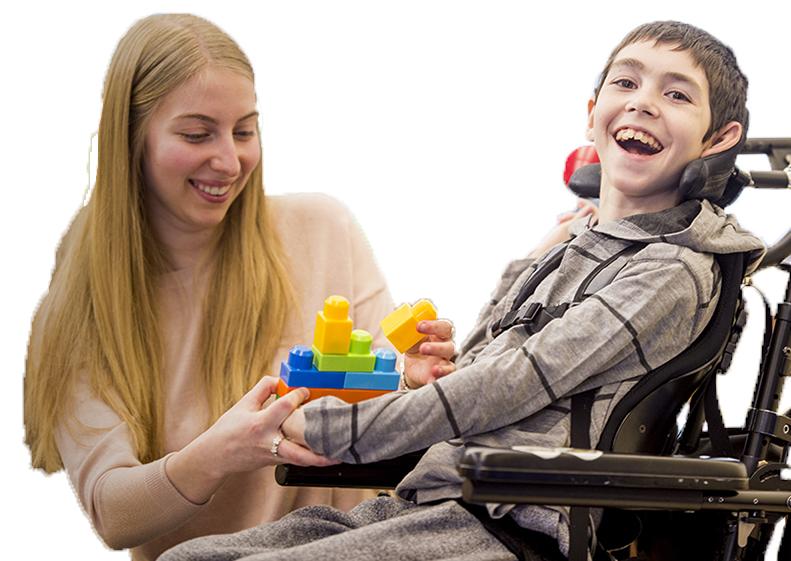Resources Directory
Search below to find a hospital, doctor, therapy, and more

Developmental Disabilities, NYS Office for People with (OPWDD)
Mission, Visions, Values and Guiding Principles
The Mission Statement: We help people with developmental disabilities live richer lives.
The Vision Statement: People with developmental disabilities enjoy meaningful relationships with friends, family and others in their lives, experience personal health and growth and live in the home of their choice and fully participate in their communities.
Values: Describe how we as employees of OPWDD interact with the individuals we serve, families, staff, the community and each other:
Compassion – The capacity to appreciate what others think and feel.
Dignity – The recognition of the worth of each person and the treatment of individual rights and preferences with respect, honor and fairness.
Diversity – The celebration, respect and embracing of the differences among us because these differences strengthen and define us.
Excellence – The continual emphasis on innovation, increasing knowledge, and delivering the highest quality supports and services.
Honesty – The foundation on which trust is built and truth is communicated.
Putting People First
“Putting People First” is OPWDD’s simple, guiding principle. And simply put, it means giving people with developmental disabilities as much individual choice and control over their own lives as possible, as well as the chance to achieve four basic outcomes:
Live in a home of their choosing within their community;
Work and/or engage in activities that allow them to contribute to their communities;
Have meaningful relationships with those important to them; and
Have good health.
Supports and Services:
High quality, person-centered services- The Office for People With Developmental Disabilities (OPWDD) provides high-quality, person-centered services, supports and advocacy to approximately 125,000 individuals with developmental disabilities and their families. OPWDD works with a network of nearly 700 not-for-profit providers to help people with developmental disabilities lead richer lives that include meaningful relationships, good health, personal growth and productivity and homes in their communities.
OPWDD also provides leadership and excellence in the field of research and in developing public policy in the field of developmental disabilities services. In keeping with its commitment to “Putting People First,” OPWDD invests heavily in enhancing its partnership with other state and local agencies. OPWDD is focused on seamlessly meshing its system of service provision with a broad network of state agencies whose work interconnects with the lives of people with developmental disabilities.
Residential Service Options: Programs licensed by OPWDD to provide housing and services and, when appropriate, overnight supports to individuals living in group homes. These community residential programs are operated by either OPWDD or not-for-profit provider agencies whose programs are certified by OPWDD.
Individualized Residential Alternatives: Certified homes for between one and 14 residents that provide room, board and individualized service options.
Community Residences: Facilities which provide semi-independent living. There are two types of Community Residences:
Supervised: which provide housing and 24-hour staffing; and
Supportive: which are limited to three people, and provide varying staff supports, according to the residents’ need.
Intermediate Care Facilities (ICFs):Residential treatment options, in the community, for individuals with specific medical and/or behavioral needs. ICFs provide 24-hour on-site assistance and training, intensive clinical and direct-care services, supervised activities and a variety of therapies. ICFs are designed for individuals whose disabilities severely limit their ability to live independently.
Family Care: A licensed residential program which provides a family-living experience in a structured, stable home environment. Family Care providers are home owners who receive a monthly stipend to care for individuals with developmental disabilities in their own homes.
Non-Certified Housing Options:Services that help individuals with developmental disabilities locate, lease, buy or access residential arrangements which are alternatives to traditional congregate living situations. Examples include shared or matched home sharing, independent living, HUD rental subsidies and low-income home ownership programs.
Day/Employment Services:
Employment Services: Competitive employment and volunteer activities in the community. Supports to the individual may include vocational training, job coaching, travel training, technological aids, counseling, job placement and other supports needed to meet the individual’s unique circumstances at work.
Day Programs: A range of day programs are available to individuals with developmental disabilities. Each is focused on giving participants the personal, social and vocational supports needed to live in their community. Programming varies depending upon each individual’s needs and interests.
Family and Individual Supports
Family Support Services: A family-directed, statewide system of comprehensive services which help families provide in-home care to family members with a developmental disability. One popular family support is respite care, which provides relief for families who care for loved ones at home. Respite is time-limited and temporary — allowing families time for errands, vacations and other planned activities.
Individual Support Services: These supports help individuals who live in their own homes.
Service Coordinators: Professionals who help individuals with developmental disabilities develop, plan, implement and monitor their own plan of services and support.
Senior Services: An extensive network of supports for senior citizens with developmental disabilities that allows them to receive generic aging services as well as developmental disabilities services. OPWDD and its voluntary agency partners provide senior day care, caregiver supports and specialized residential supports. OPWDD service coordinators provide referrals to aging network services.
Clinic Services: Provide long-term habilitation services, such as outpatient, physical therapy, speech therapy, nursing, rehabilitation counseling, social work and psychiatric services.
Transportation: Provides individuals with transportation to and from their residence and program services.
Please visit our website or Contact us for more information:
Online Contact Form
OPWDD Contacts by Topic
OPWDD Offices:
